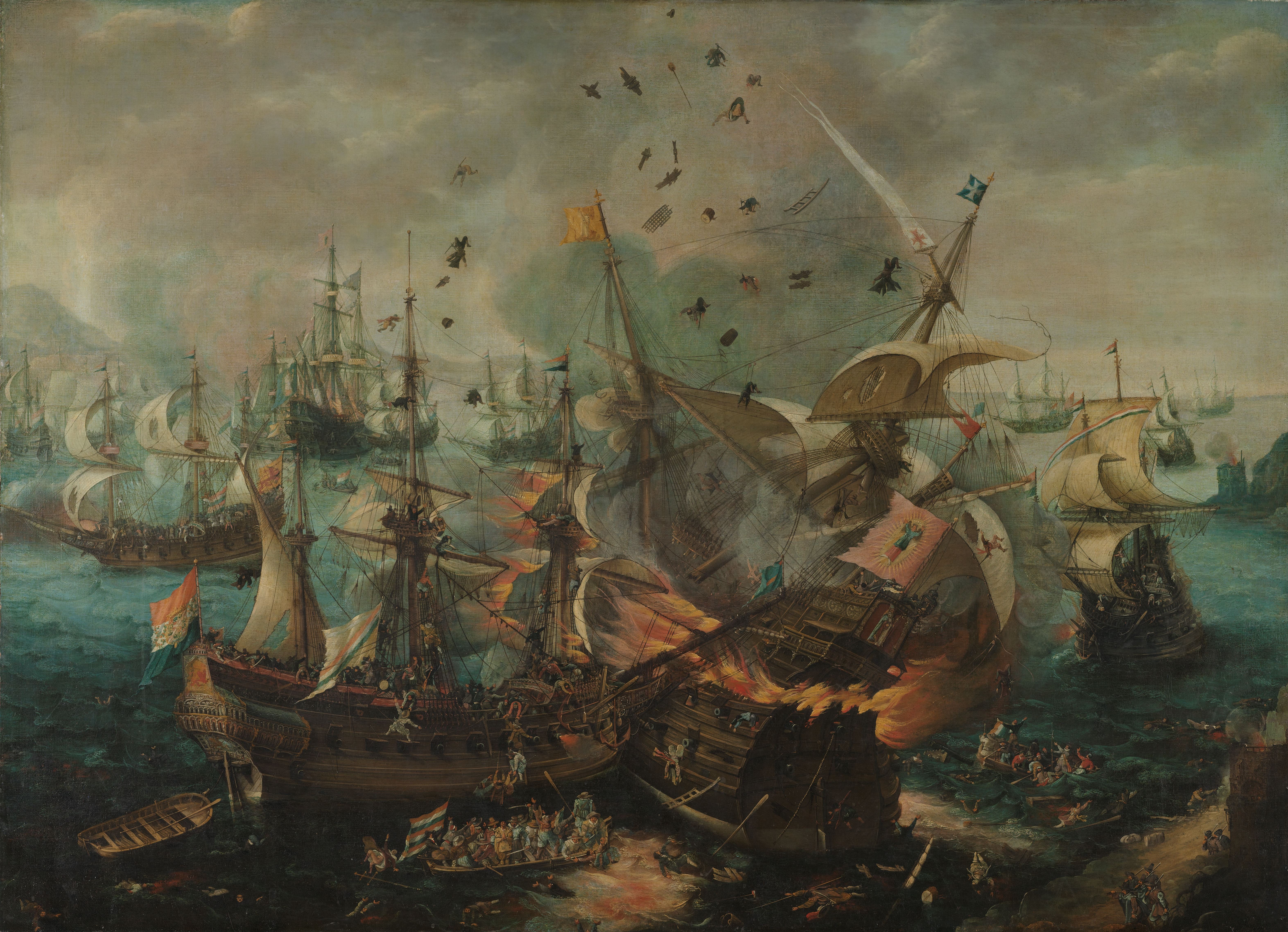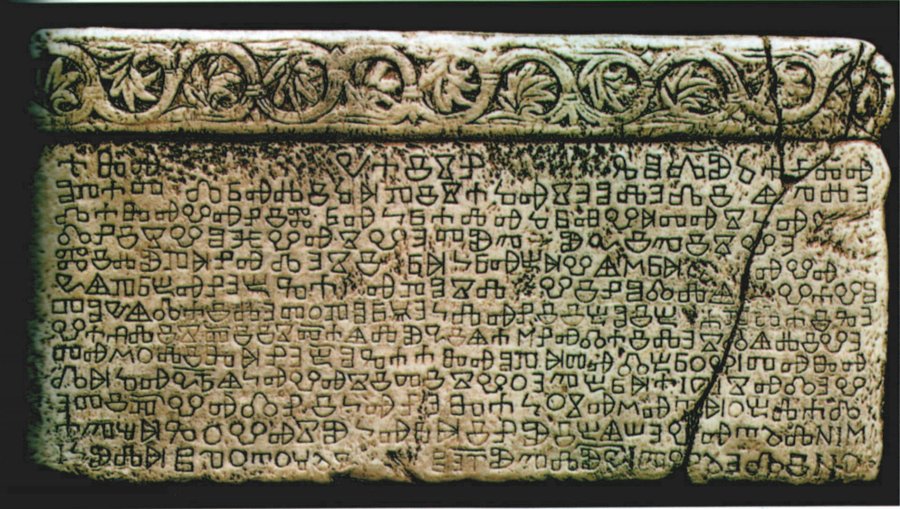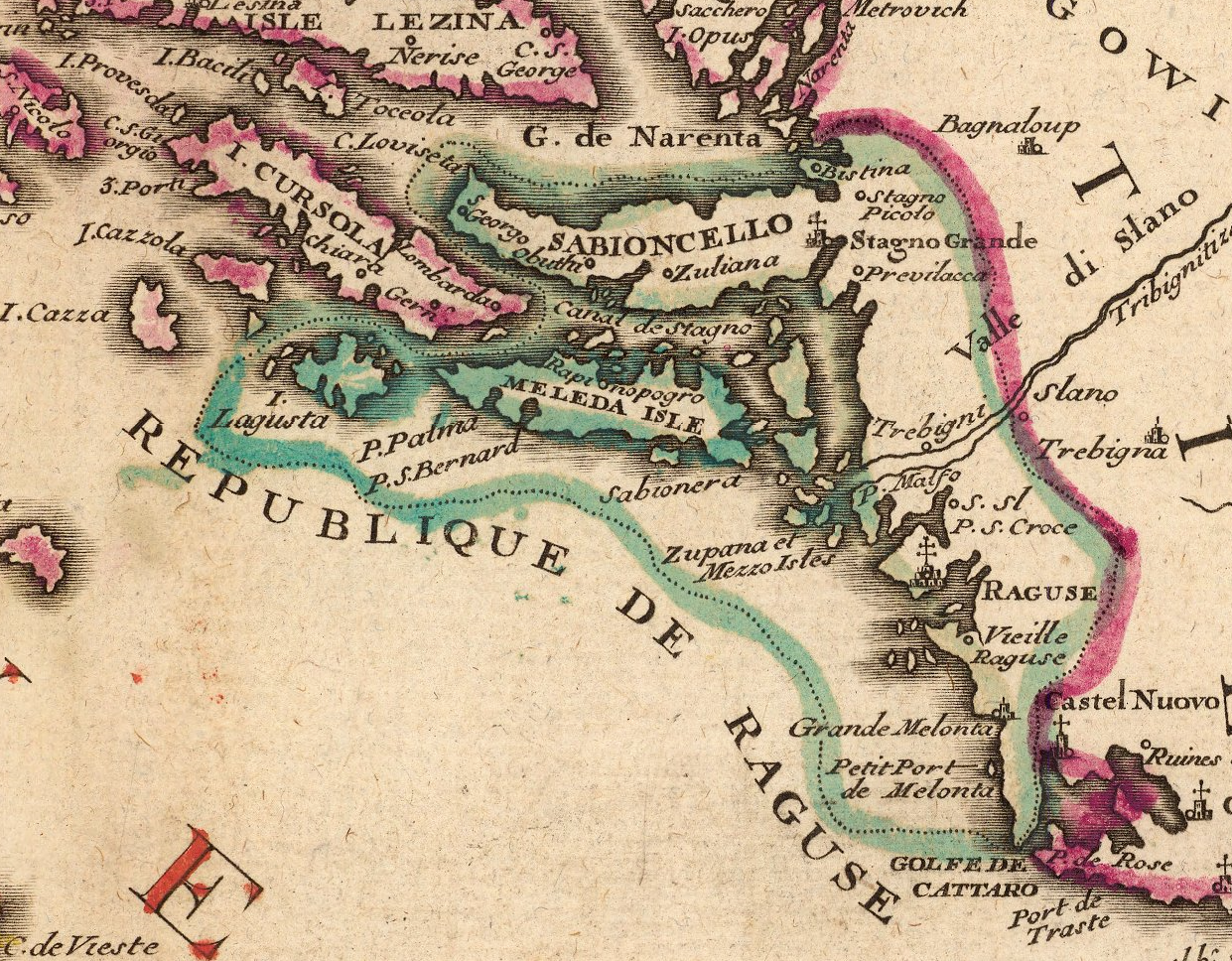|
Dinko Ranjina
Dinko Ranjina (also Domenico Ragnina; 1536–1607) was a Dalmatian poet from the Republic of Ragusa (Dubrovnik). In 1556 he was accepted into the Republic's ruling Grand Council. He was married to the sister of Francesco Luccari Burina. Life Ranjina was born and died in Dubrovnik. He travelled to Messina in the hopes of taking up trade and eventually made his way to Florence. It was in Florence that he began to write. He wrote extensively in both Croatian (about 450 poems) and Italian (about 30 sonnets) in the collection from 1563. He also wrote the Croatian songbook . Cosimo de' Medici admitted Ragnina to the Order of St. Stephen. A few years later he returned to the Republic of Ragusa. He died in 1607, 71 years old and well esteemed, after having been rector (''knez'') of the Ragusa government seven times. See also * Republic of Ragusa * Croatian literature * Dalmatian Italians Dalmatian Italians (; ) are the historical Italian national minority living in the re ... [...More Info...] [...Related Items...] OR: [Wikipedia] [Google] [Baidu] [Amazon] |
Dalmatian Italians
Dalmatian Italians (; ) are the historical Italian national minority living in the region of Dalmatia, now part of Croatia and Montenegro. Historically, Italian language-speaking Dalmatians accounted for 12.5% of population in 1865, 5.8% in 1880, and to 2.8% in 1910, suffering from a constant trend of decreasing presence, due to various reasons. From 1943 to 1960, the number decreased as a result of the Istrian–Dalmatian exodus. Nowadays, some 500–2,000 people (0.05%–0.2%) identify as Italians. Throughout history Dalmatian Italians exerted a vast and significant influence on Dalmatia, especially cultural and architectural. Dalmatian Italians are currently represented in Croatia and Montenegro by the Italian National Community (Italian: ''Comunità Nazionale Italiana'') (CNI). The Italo-Croatian minorities treaty recognizes the Italian Union (''Unione Italiana'') as the political party officially representing the CNI in Croatia. The Italian Union represents the 30,000 e ... [...More Info...] [...Related Items...] OR: [Wikipedia] [Google] [Baidu] [Amazon] |
Ragusan Nobility
The nobility of the Republic of Ragusa included patrician families, most of which originated from the City of Dubrovnik, and some coming from other, mostly neighbouring, countries. The Republic of Ragusa was ruled by a strict patriciate formally established in 1332, which was subsequently modified only once, following the 1667 Dubrovnik earthquake. Families * Basiljević * Benessa * Binciola * Bobali * Bocignolo * Bodazza * Bona * Bonda * Božidarević * Buća * Cerva * Giorgi * Ghetaldi * Gradić * Gučetić * Gundulić * Kaboga * Calich * Klašić * Crasso * Croce * Giuriceo * Gleda * Lukarić * Martinussio * Menčetić * Mlaschagna * Natali * Palmotić * Pavlić * Proculi * Prodanelli * Pucić * Radagli * Ranjina * Resti * Saraca * Sorgo * Tudisi * Vodopić * Volcasso * Zamagna * Zlatarić See also *Patrician (post-Roman Europe) Patricianship, the quality of belonging to a patriciate, began in th ... [...More Info...] [...Related Items...] OR: [Wikipedia] [Google] [Baidu] [Amazon] |
Italian Male Poets
Italian(s) may refer to: * Anything of, from, or related to the people of Italy over the centuries ** Italians, a Romance ethnic group related to or simply a citizen of the Italian Republic or Italian Kingdom ** Italian language, a Romance language *** Regional Italian, regional variants of the Italian language ** Languages of Italy, languages and dialects spoken in Italy ** Italian culture, cultural features of Italy ** Italian cuisine, traditional foods ** Folklore of Italy, the folklore and urban legends of Italy ** Mythology of Italy, traditional religion and beliefs Other uses * Italian dressing, a vinaigrette-type salad dressing or marination * Italian or Italian-A, alternative names for the Ping-Pong virus, an extinct computer virus * ''Italien'' (magazine), pro-Fascist magazine in Germany between 1927 and 1944 See also * * * Italia (other) * Italic (other) * Italo (other) * The Italian (other) * Italian people (other) Italian ... [...More Info...] [...Related Items...] OR: [Wikipedia] [Google] [Baidu] [Amazon] |
Italian Poets
List of poets who wrote in Italian language, Italian (or Italian dialects). A *Antonio Abati *Luigi Alamanni *Aleardo Aleardi *Dante Alighieri *Cecco Angiolieri *Gabriele D'Annunzio *Ludovico Ariosto *Francis of Assisi B *Nanni Balestrini *Dario Bellezza *Giuseppe Gioacchino Belli (Rome, Roman dialect) *Attilio Bertolucci *Carlo Betocchi *Alberta Bigagli *Giovanni Boccaccio *Maria Alinda Bonacci Brunamonti *Carlo Bordini *Franco Buffoni *Michelangelo Buonarroti *Helle Busacca *Ignazio Buttitta (Sicily, Sicilian language) *Paolo Buzzi C *Dino Campana *Giorgio Caproni *Giosuè Carducci *Guido Cavalcanti *Roberto Carifi *Gabriello Chiabrera *Compagnetto da Prato D *Cielo d'Alcamo *Antonio De Santis (Italian and Larino, Larinese dialect) *Milo de Angelis *Fabrizio De André *Eugenio De Signoribus E *Muzi Epifani F *Caterina Franceschi Ferrucci *Alba Florio *Franco Fortini *Ugo Foscolo *Erminia Fuà Fusinato G *Alfonso Gatto *Giuseppe Giusti *Corrado Govoni *Guido G ... [...More Info...] [...Related Items...] OR: [Wikipedia] [Google] [Baidu] [Amazon] |
16th-century Male Writers
The 16th century began with the Julian year 1501 (represented by the Roman numerals MDI) and ended with either the Julian or the Gregorian year 1600 (MDC), depending on the reckoning used (the Gregorian calendar introduced a lapse of 10 days in October 1582). The Renaissance in Italy and Europe saw the emergence of important artists, authors and scientists, and led to the foundation of important subjects which include accounting and political science. Copernicus proposed the heliocentric universe, which was met with strong resistance, and Tycho Brahe refuted the theory of celestial spheres through observational measurement of the 1572 appearance of a Milky Way supernova. These events directly challenged the long-held notion of an immutable universe supported by Ptolemy and Aristotle, and led to major revolutions in astronomy and science. Galileo Galilei became a champion of the new sciences, invented the first thermometer and made substantial contributions in the fields of ph ... [...More Info...] [...Related Items...] OR: [Wikipedia] [Google] [Baidu] [Amazon] |
16th-century Croatian Poets
The 16th century began with the Julian year 1501 (represented by the Roman numerals MDI) and ended with either the Julian or the Gregorian year 1600 (MDC), depending on the reckoning used (the Gregorian calendar introduced a lapse of 10 days in October 1582). The Renaissance in Italy and Europe saw the emergence of important artists, authors and scientists, and led to the foundation of important subjects which include accounting and political science. Copernicus proposed the heliocentric universe, which was met with strong resistance, and Tycho Brahe refuted the theory of celestial spheres through observational measurement of the 1572 appearance of a Milky Way supernova. These events directly challenged the long-held notion of an immutable universe supported by Ptolemy and Aristotle, and led to major revolutions in astronomy and science. Galileo Galilei became a champion of the new sciences, invented the first thermometer and made substantial contributions in the fields of phy ... [...More Info...] [...Related Items...] OR: [Wikipedia] [Google] [Baidu] [Amazon] |
1607 Deaths
Events January–March * January 13 – The Bank of Genoa fails. * January 19 – San Agustin Church, Manila, is officially completed; by the 21st century it will be the oldest church in the Philippines. * January 30 – Coastal flooding around Britain, probably a storm surge, including Bristol Channel floods in which a massive wave sweeps along the Bristol Channel, killing an estimated 2,000 people. * February 24 – Claudio Monteverdi's ''L'Orfeo'', the earliest fully developed opera in the modern-day repertoire, premieres at the Ducal Palace of Mantua. * March 10 – Battle of Gol in Gojjam: Susenyos defeats the combined armies of Yaqob and Abuna Petros II, which makes him Emperor of Ethiopia. April–June * April 25 – Battle of Gibraltar: A Dutch fleet of 26 warships, led by Admiral Jacob van Heemskerck, stages a surprise attack on a Spanish fleet anchored in the Bay of Gibraltar. In the battle that ensues, Spain loses as man ... [...More Info...] [...Related Items...] OR: [Wikipedia] [Google] [Baidu] [Amazon] |
1536 Births
Year 1536 ( MDXXXVI) was a leap year starting on Saturday of the Julian calendar. Events January–March *January 6 – The Colegio de Santa Cruz de Tlatelolco, the oldest European school of higher learning in the Americas, is established by Franciscans in Mexico City. * January 22 – John of Leiden, Bernhard Knipperdolling and Bernhard Krechting are executed in Münster for their roles in the Münster Rebellion. * January 24 – King Henry VIII of England is seriously injured when he falls from his horse at a jousting tournament in Greenwich, after which the fully armored horse falls on him. The King is unconscious for two hours, sustaining an injury to an ulcerated leg and a concussion. * February 2 – Spanish conquistador Pedro de Mendoza founds Buenos Aires in what is now Argentina. * February 18 – A Franco-Ottoman alliance exempts French merchants from Ottoman law and allows them to travel, buy and sell throughout the sultan's domini ... [...More Info...] [...Related Items...] OR: [Wikipedia] [Google] [Baidu] [Amazon] |
Ranjina (family)
The House of Ranjina, known as ''Ragnina'' in Italian, was a noble family in the Republic of Ragusa. History The family traced its origins from Taranto, Italy. Members *Nićifor Ranjina (fl. 1319), built the Minčeta Tower in 1319, originally as a strong four-sided fort. *Nikša Ranjina (1494–1582), writer most famous as the compiler of Ranjina's Miscellany *Dinko Ranjina (1536–1607), poet See also *Croatian nobility Croatian nobility (; ) was a privileged social class in Croatia during the Ancient history, Antiquity and Middle Ages, Medieval periods of the country's history. Noble families in the Kingdom of Croatia (other), Kingdom of Croatia inclu ... References * * Ragusan noble families Dalmatian Italians {{Croatia-hist-stub ... [...More Info...] [...Related Items...] OR: [Wikipedia] [Google] [Baidu] [Amazon] |
Croatian Literature
Croatian literature refers to literary works attributed to the medieval and modern culture of the Croats, Croatia, and Croatian language, Croatian. Besides the modern language whose shape and orthography were standardized in the late 19th century, it also covers the oldest works produced within the modern borders of Croatia, written in Church Slavonic and Medieval Latin, as well as vernacular works written in Čakavian dialect, Čakavian and Kajkavian dialects. History Croatian medieval literature Croatian medieval prose is similar to other European medieval literature of the time. The oldest testaments to Croatian literacy are dated to the 11th and 12th centuries, and Croatian medieval literature lasted until the middle of the 16th century. Some elements of medieval forms can be found even in 18th-century Croatian literature, meaning their influence was stronger in Croatia than in the rest of Europe. Early Croatian literature was inscribed on stone tablets, hand-written on man ... [...More Info...] [...Related Items...] OR: [Wikipedia] [Google] [Baidu] [Amazon] |
Republic Of Ragusa
The Republic of Ragusa, or the Republic of Dubrovnik, was an maritime republics, aristocratic maritime republic centered on the city of Dubrovnik (''Ragusa'' in Italian and Latin; ''Raguxa'' in Venetian) in South Dalmatia (today in southernmost Croatia) that carried that name from 1358 until 1808. It reached its commercial peak in the 15th and the 16th centuries, before being conquered by Napoleon's First French Empire, French Empire and formally annexed by the Kingdom of Italy (Napoleonic), Napoleonic Kingdom of Italy in 1808. It had a population of about 30,000 people, of whom 5,000 lived within the city walls. Its motto was "'", a Latin phrase which can be translated as "Liberty is not well sold for all the gold". Names Originally named ' (Latin for "Ragusan municipality" or "community"), in the 14th century it was renamed ' (Latin for ''Ragusan Republic''), first mentioned in 1385. It was nevertheless a Republic under its previous name, although its Rector was appointed b ... [...More Info...] [...Related Items...] OR: [Wikipedia] [Google] [Baidu] [Amazon] |






